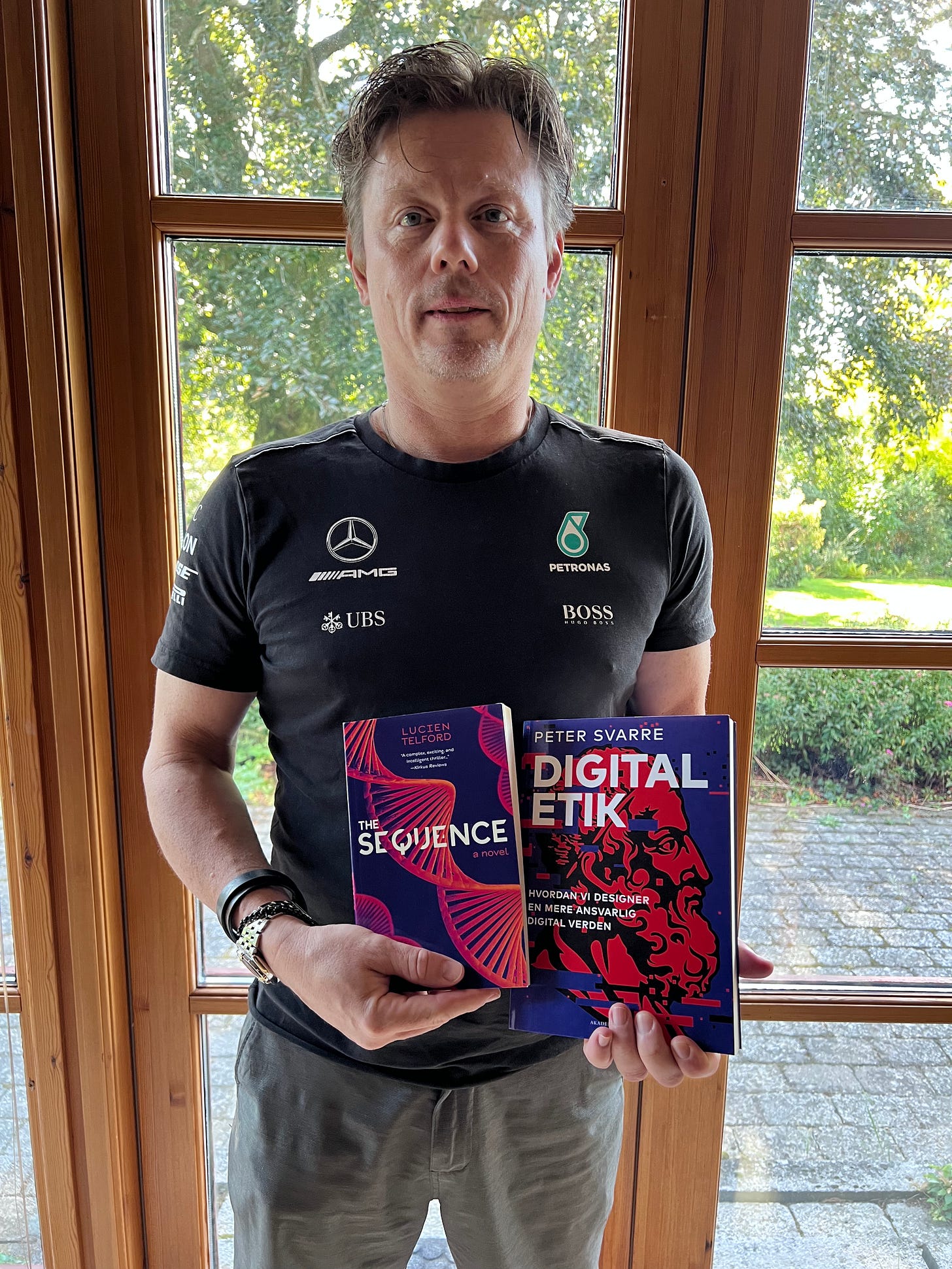Part Two, Now of Three. Tuning Out So I Can Tune Back In.
A week of adventures in Denmark in my increasingly busy life.
It is Monday, September 25, 2023. Today I have the luxury of sitting at the desk of famous Danish author and speaker, Peter Svarre. Peter is married to Christine, who is a Tolborg, my wife’s cousin. The book rearrangements in the photo above were my early morning project today while Katie fed our baby boy, Declan.
Inspirational Spoiler Alert.
Peter, it turns out, is a leader in explaining the nuts and bolts of Artificial Intelligence to the rest of us, making it an understandable medium without all the technical clutter and coding jargon.
Since our arrival, Peter and I have been discussing Artificial Intelligence, or AI, at what I assume is a significantly reduced comprehension level (for my benefit) than he would normally use at his keynote speeches. My interest in the topic is a direct result of my second novel’s exploration of the ethics surrounding sentient AI. Peter writes non-fiction. I use fiction to illuminate emerging technologies like Genetic Engineering in The Sequence, and Artificial Intelligence in False Ignition. I’ll be writing about Robotics in book three, and a surprise technology for book four. I am proud to say I read a book for research purposes entitled, SuperIntelligence: Paths, Dangers, Strategies by Nick Bostrom which Peter also studied and used for an entire chapter in his book, Digital Etik (Digital Ethics). Needless to say I have been educated by Peter on this topic, since I’m using it strictly for fun, while he uses it for work. We got into a fantastic discussion about bias, specifically unintentional bias, and what strategies the creators of these rudimentary AI’s that we use today can and could use to combat it.
Social Interruptus.
Peter is also a renowned specialist in Social Media, having written an authoritative book on the subject more than a decade ago.
This brings us back to Part Two of Tuning Out So I can Tune Back In. We both agreed on the current fractured state of the medium, but I was intrigued to hear Peter predict the further fragmentation of social apps into smaller and smaller communities. The discussion quickly morphed into Google, and how high their level of panic must have been when OpenAI released ChatGPT, and that their entire business model must be in jeopardy. Why would we Google something using basic language, only to be fed multiple sponsored pages and a few of Google’s own algorithm’s links, when one can type a conversational phrase into OpenAI’s ChatGPT interface and receive a specific and variable response, one that can be honed through further input. Here we enter the realm of Prompt Engineering.
Keep reading with a 7-day free trial
Subscribe to From Beneath a Perpetual Synthetic Dusk to keep reading this post and get 7 days of free access to the full post archives.







